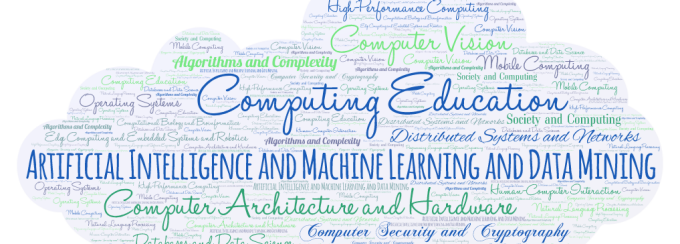Research Areas
Word cloud describing CSE research areas. The relative relative word sizes represent the number of faculty working in each area. Photo credit: Christian Miller
Related Links
CSE research faculty and their students work in four research categories encompassing 18 research areas.
We expand the state of the art by producing original, innovative, groundbreaking research.


















